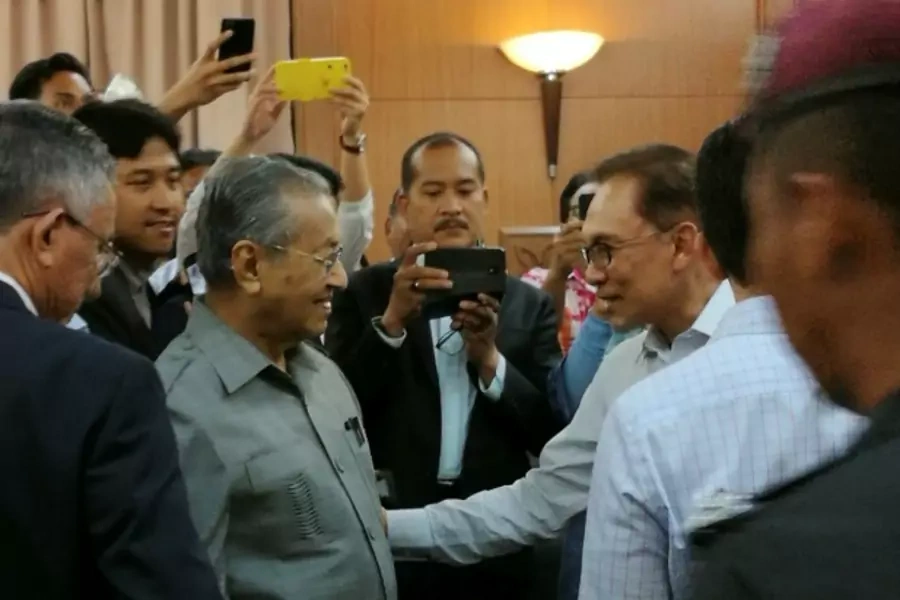More on:
Two days ago, Malaysian Prime Minister Najib tun Razak told reporters that he would not call national elections until 2018, when his parliament’s term runs out. As The Diplomat recently reported, some Malaysian observers thought that Najib would hold elections earlier---even as early as the middle of next year---because his party’s grip on power will wane in the face of a newly emboldened opposition. As The Diplomat noted, “The idea of holding early elections rests on the idea that Najib and his supporters perceive his political position as being stronger now than it will be within the next year or two.”
It is true that, in recent months, Malaysia’s opposition seems to have been invigorated. Former Prime Minister Mahathir Mohamad, who has been inveighing against Najib for over a year, announced that he and Najib’s ousted Deputy Prime Minister Muhyiddin Yassin are forming a new opposition party. It could presumably attract some supporters of the ruling party who have become disgusted by Najib’s ongoing corruption scandals, and possibly by the government’s growing intolerance of dissent. Mahathir and Anwar Ibrahim, decades-old foes, shared a handshake in full view of the media, and some of Mahathir’s allies have begun publicly raising the possibility that his new party, Anwar’s opposition party, and other opposition parties would form a new alliance that would be a strong contender in elections against the UMNO-led governing coalition.
But the opposition only seems to have been invigorated, and there is little evidence, right now, that it can seriously challenge Najib’s rule---which is perhaps why the prime minister is willing to wait two years to call elections. It remains unclear who Mahathir’s party would attract; Malaysians angry at Najib’s supposed corruption and repression already would probably be aligned with Anwar’s party. And despite the Anwar-Mahathir handshake, many in Anwar’s party rightly do not trust the former prime minister, who after all oversaw Anwar’s purge from the government two decades ago and subsequent first sodomy trial. Mahathir also has no clear platform other than removing Najib, and he hardly makes a compelling spokesperson for combating the growing suppression of civil society. Under Mahathir, Malaysia’s civil society was also frequently harassed and even jailed.
Meanwhile, other divides are appearing among opposition parties that would further complicate the possibility of a successful alliance in 2018. Besides the distrust of Mahathir, Anwar’s party members do not want Muhyiddin Yassin to be the opposition’s choice as a prime minister candidate. Anwar’s opposition coalition also no longer has most of the Parti Islam se-Malaysia within its ranks, costing it significant appeal with conservative Malays. Meanwhile, Najib and the ruling coalition have maneuvered to win that conservative Malay support, in part by allowing a bill to move through parliament that would set a precedent for applying religious law in areas now governed by secular law. In the longer run, Najib may hope to form an actual alliance before the 2018 elections with the members of the Parti Islam se-Malaysia who left the opposition coalition; such an alliance would command a vast share of Malay support and would probably be unbeatable.
The divides within the opposition, the successful politicking by Najib---add to these challenges Malaysia’s usual electoral gerrymandering, vote buying, and outright fraud. Taken together, it seems an election in 2018, or even next year, will be a tough task for any opposition coalition.
More on:
 Online Store
Online Store
